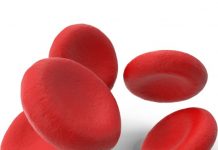Sometimes when you go for routine checkup to your doctor, he may ask you to give urine sample. Then the doctor checks for pH of urine and also for the existence of some other compounds likeblood in urine. It is more common to have blood in urine and have the urine look normal in appearance.
If the blood in your urine is noticeable only with a dipstick or under the microscope, then the condition is known as microscopic hematuria.
Various conditions can lead to traces of blood in the urine including kidney diseases.
But, the most common causes include kidney stones orurinary tract infection (UTI).
If these two conditions are the causes of blood in urine, then you will also have some other symptoms like frequent urination, burning while urinating, and abdominal discomfort.
Kidney stones can also have some other symptoms like back pain, flank pain which sometimes are associated with vomiting and nausea.
If urinary tract infection is the main cause of your hematuria, then urine contains white blood cells. These can be noticeable with dipstick or by looking under the microscope.
In some conditions, UTI causes minimal symptoms to appear in your body. Due to this, your doctor prescribes antibiotics to observe whether it leads to microscopic blood in your urine to appear clear.
Is exercise a cause of microscopic hematuria?
Sometimes blood in urine can also be due to vigorous physical activity before presenting the urine sample. This condition can be observed in children who play games. Normally, this condition subsides after taking rest for 2-3 days. If not, doctor can suggest further tests.
Are hereditary conditions a cause of hematuria?
Researchers state that hereditary conditions such as polycystic kidney disease and sickle cell disease can lead to blood in the urine.
Younger persons are more susceptible to microscopic hematuria because of UTI, bladder or kidney stones. Risk factors of urinary tract are due to smoking, contact with certain chemicals and age above 40.
One of the types of hematuria is benign familial hematuria. This is the presence of red blood cells in the urine. This is the inherited condition through various family members.
Can urine test be negative in detecting blood in urine?
Sometimes urine test show wrong results about having blood in urine. There are some cases of false positive and false negative urine drip strip chemical tests. Observing the urine sample under the microscope can give correct results.
High acid content in urine or over exposure of the strips to the air can also give false results in some cases.













